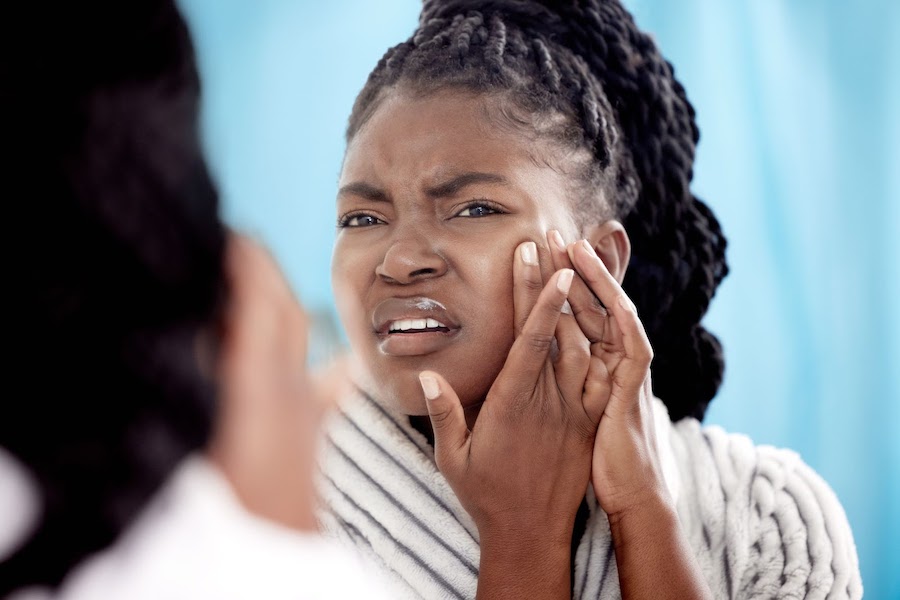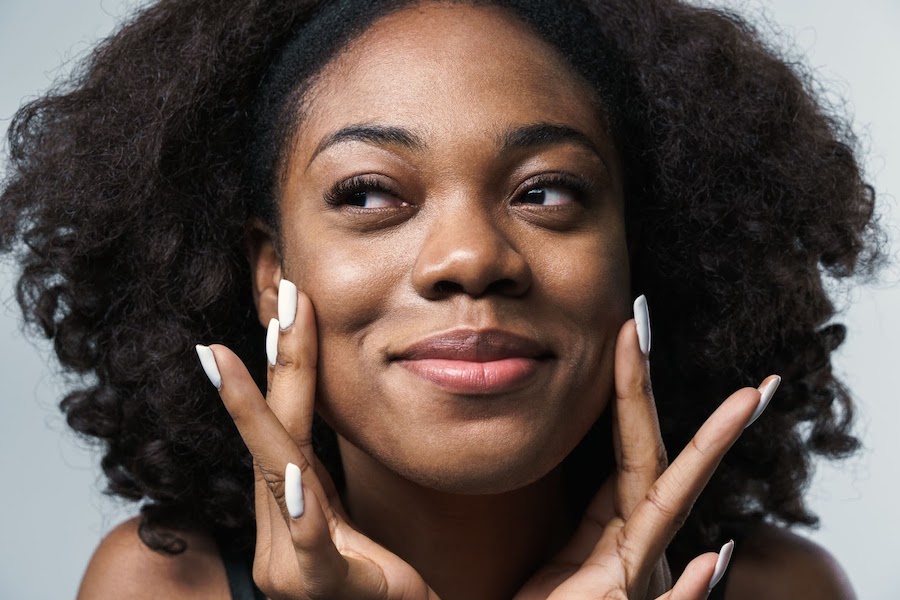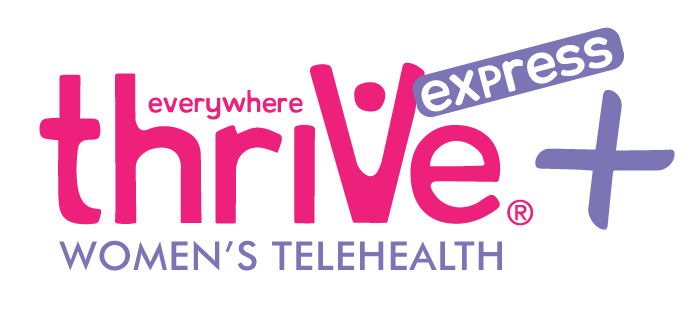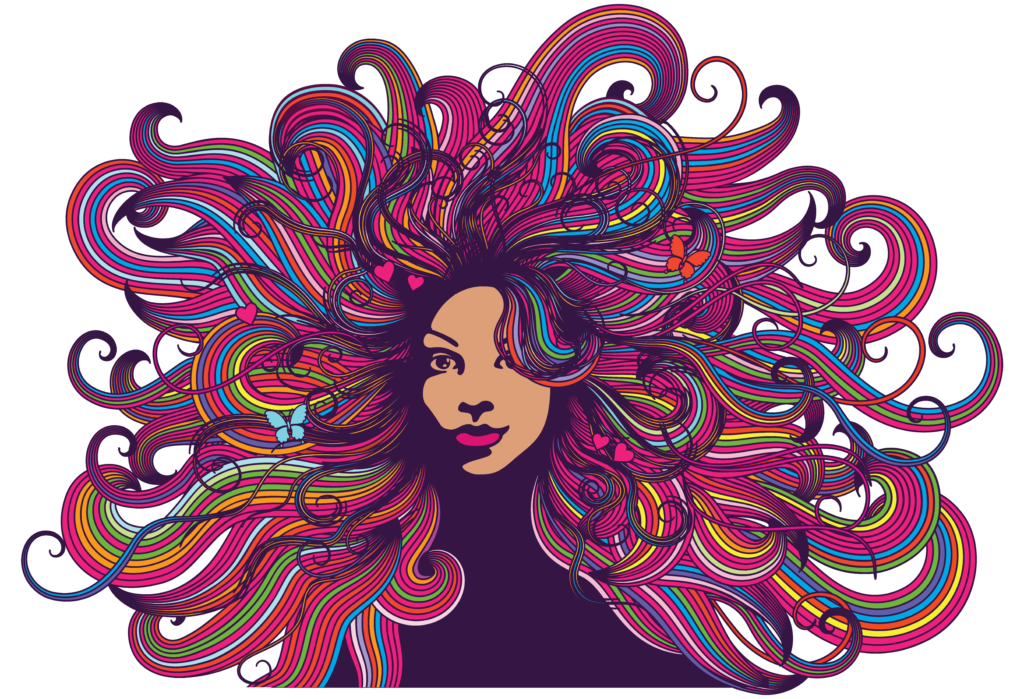What causes hormonal acne?
I totally get how frustrating hormonal acne can be — it can feel like no matter what you do, acne just flares up out of nowhere! Even when we’re drinking the water and doing our skin care routines, acne can still get the best of us. We’ve been there! We know what it’s like to visit a dermatologist, spend time looking things up on Google, wondering if you have a skin condition. But oftentimes, it’s much simpler than we think.
So is there hope? Thankfully, yes! The key to acne treatment is finding out what’s causing it. And since we all have different bodies and lifestyles, it’s up to you and your doctor to figure out what’s going on! But ThriVe’s blog section is like your BFF when it comes to women’s health questions. So let’s get to it.

Real Causes of Hormonal Acne
So what causes breakouts? Well, it depends. Blemishes themselves are caused by excess sebum (oil made by the sebaceous glands in your skin), a hair follicle pore getting plugged by oil or dead skin cells, bacteria, and inflammation. Blockages can form a lump (like a little cyst) under the surface of the skin, or can look like a dark dot (a blackhead).1
But the causes of acne are often more than skin deep. There are things that can trigger acne, including:
– Hormonal fluctuations: Especially during puberty or menopause, your period, pregnancy, or even when you’re stressed (ugh, stress acne is the worst!).1
– PCOS (Polycystic Ovary Syndrome): PCOS is a problem with hormones that affects women’s periods. Sometimes it causes women to have too much of a hormone called androgen in their body. High levels of this hormone can cause severe acne, excess facial and body hair, and even male-pattern baldness. To manage PCOS, some doctors prescribe an oral contraceptive or other form of birth control). But more on that in a minute!2
– Medications: What causes hormonal acne? Crazy as it might sound, some hormonal birth control methods might actually trigger acne flare-ups (yep, it’s true).3
How Birth Control Affects Your Body
Like we mentioned, sometimes women turn to birth control to help with acne or other hormone-related issues (like heavy periods or PCOS).4 Some women just assume everyone is taking birth control, and clearer skin is a bonus. But it’s important to know that birth control has risks and can affect your hormones in different ways — many of them not-so-great!
Now, hormonal birth control (like the name implies) works by affecting your hormones. But everyone’s body reacts differently. Some people find that hormonal birth control (like progestin-only options, or “the mini pill”) can actually cause acne.3
If a woman is thinking about using birth control to treat acne, it’s always a good idea to understand the risks and side effects of these medications, including:
| Nausea | Developing high blood pressure |
| Headache | Blood clots |
| Irregular bleeding | Heart attack |
| Weight gain | Stroke3 |
If you want to avoid these side effects, talk with your doctor about other ways to manage or treat acne — and get your glow up:
| Topical medications (like a topical retinoid) | Over-the-counter products |
| Light therapy | Brewer’s yeast |
| Tea tree oil | …and avoiding oily or greasy hair and skin products.4 |
But remember that everyone’s body is unique, and what works for one person might not work for someone else.
Join a movement of confident women
Speaking of birth control, there’s a growing number of women deciding they’re not ready to deal with the effects or risks. The main reason women take birth control is to avoid pregnancy, but there’s another (much more effective) way. The only sure-fire way to avoid getting pregnant is to delay sex for now.3 Not only does this give you time to avoid any side effects from birth control, but it also lets you focus on understanding your body’s natural cycle and deepening relationships without sex complicating things.
Some things to think about:
– Do you feel ready to deal with both the physical and emotional aspects of sex right now?
– Would you rather avoid the side effects of birth control altogether?
Remember, you get to decide what feels right for your body and your health. If you’ve got questions about birth control (or other women’s health questions), ThriVe’s blog has tons of articles that can help you get the info you need.
At the end of the day, girl, it’s your choice! You know your body better than anyone else, and you’re in control of your health.
Does this help clear up some of the confusion? Let me know what you’re thinking!
Common Misconceptions
Now, let’s debunk some of those myths many of us have heard:
– Myth #1: All acne comes from poor hygiene.
Nope! Hormonal acne isn’t about how often you wash your face. It’s more about what’s going on inside your body, and not caused by dirty skin.1
– Myth #2: Eating greasy foods or chocolate causes acne.
So, enjoy that pizza (if you want to!)! Greasy foods don’t directly cause hormonal acne, though eating a balanced diet is always good for overall health.1
– Myth #3: Hormonal acne is only a teenage thing.
Not true! Acne can stick around in your 20s, 30s, and beyond. “Adult acne” is an actual thing! It’s more common in teenagers, but it’s not just a teenage problem.1
– Myth #4: Wearing makeup causes acne.
Makeup doesn’t necessarily make acne worse — especially if you use products that don’t clog pores (non comedogenic). Just make sure removing your makeup is part of your self-care routine.1
Have you noticed breakouts around your cycle?
Tracking your menstrual cycle can help you know when to expect flare-ups. Being in tune with your body is a great way to manage it.

Need more answers about what causes hormonal acne?
Hope this helps make sense of it all! If you still have questions, ThriVe’s blog has tons of info about women’s health. So definitely, check it out. We’ve got the facts without the judgment, which is always a win, right?
And remember, if you need more info about pregnancy, abortion, or STI testing, please give us a shout.
Sources:
1https://www.mayoclinic.org/diseases-conditions/acne/symptoms-causes/syc-20368047
2https://www.mayoclinic.org/diseases-conditions/pcos/symptoms-causes/syc-20353439
3https://www.fda.gov/consumers/womens-health-topics/birth-control#ShortActingHormonalContraceptives
4https://www.mayoclinic.org/diseases-conditions/acne/diagnosis-treatment/drc-20368048




